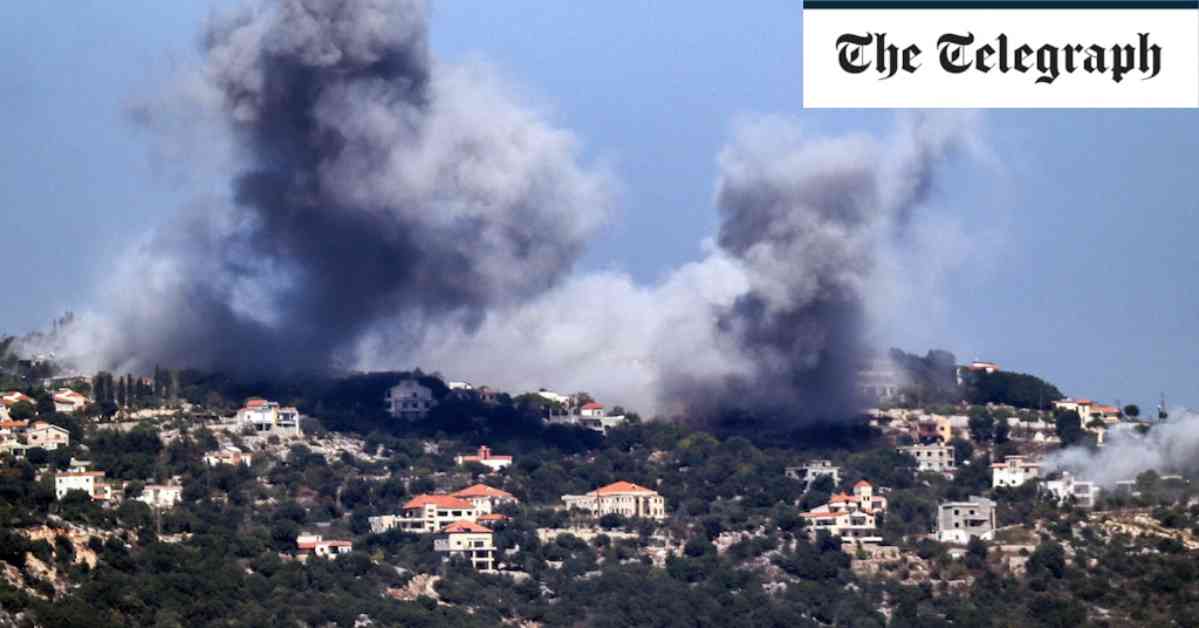Hezbollah Launches Ballistic Missile at Tel Aviv amid Israel-Hamas Conflict
Hezbollah, the Lebanese militant group, has escalated tensions in the ongoing conflict between Israel and Hamas by launching a ballistic missile at Tel Aviv. The missile, identified as a Fadi rocket, has raised concerns about the potential impact of Hezbollah’s new weaponry on the region.
Impact of Hezbollah’s Fadi Rockets:
The Fadi rocket, a type of missile used for the first time by Hezbollah, is reported to have more explosive power and range compared to other rockets. However, experts have noted that the Fadi rockets lack precision, as evidenced by the discrepancy between the announced targets and the actual impact locations. Elliot Chapman, a regional expert, stated that the design of the Fadi rocket is based on the Syrian Khaibar rocket, which itself is derived from China’s WS-1 design.
Hezbollah’s Response and Strategy:
In response to Israeli military centers and an airbase being targeted, Hezbollah claimed to have hit these locations with “dozens” of Katyusha, Fadi-1, and Fadi-2 rockets. While the origin of these weapons is unclear, the use of heavy artillery rockets by Hezbollah signals a potential shift in their military strategy. War Noir, a co-founder of Militant Wire, suggested that if Hezbollah can withstand Israeli airstrikes, these rockets may be used more frequently and against deeper targets within Israel.
Israeli Response and Escalation:
Following Hezbollah’s ballistic missile launch at Tel Aviv, the Israeli military conducted “extensive” airstrikes in south Lebanon and the eastern Beqaa region. The strikes targeted Hezbollah facilities and weapons storage sites in response to the missile attack. This escalation of hostilities between Israel and Hezbollah has raised concerns about the potential for further violence in the region.
Global Reactions and Concerns:
The death toll in Gaza from Israel’s conflict with Hamas has risen to 41,495, according to authorities in the Hamas-run territory. The continued violence in the region has prompted international condemnation, with Egypt, Iraq, and Jordan warning that Israel’s actions are pushing the region towards all-out war. Iran’s Supreme Leader, Ayatollah Ali Khamenei, also stated that targeting Hezbollah commanders would not weaken the group’s resolve.
International Response and Evacuations:
Amid the escalating conflict, the Kremlin has urged Russian nationals to leave Lebanon for their safety, citing the potential destabilization of the Middle East due to Israeli strikes on Hezbollah targets. The British Army has also prepared to evacuate 10,000 Britons from the region, emphasizing the volatile nature of the situation and advising against travel to Lebanon. Additionally, Norway has initiated an investigation into reports linking a Norwegian-owned company to the supply of pagers used by Hezbollah that exploded in Lebanon.
US Arms Sales and Military Support:
In a move to bolster its regional allies, the US has approved the sale of $740 million in Stinger missiles to Egypt, despite concerns about human rights violations. The sale of missiles to Egypt is part of a broader effort to enhance the security and stability of allies in the Middle East. The US has also ramped up arms sales to Ukraine and Israel, further exacerbating tensions in the region.
Conclusion:
As the conflict between Israel, Hamas, and Hezbollah continues to escalate, the use of advanced weaponry and military tactics raises concerns about the potential for further violence and instability in the region. International condemnation and calls for de-escalation underscore the urgency of finding a peaceful resolution to the ongoing crisis. The impact of Hezbollah’s ballistic missile launch at Tel Aviv serves as a stark reminder of the volatile situation in the Middle East and the need for diplomatic efforts to prevent further escalation.












